Search titles
Displaying results 31 to 40 of 628.
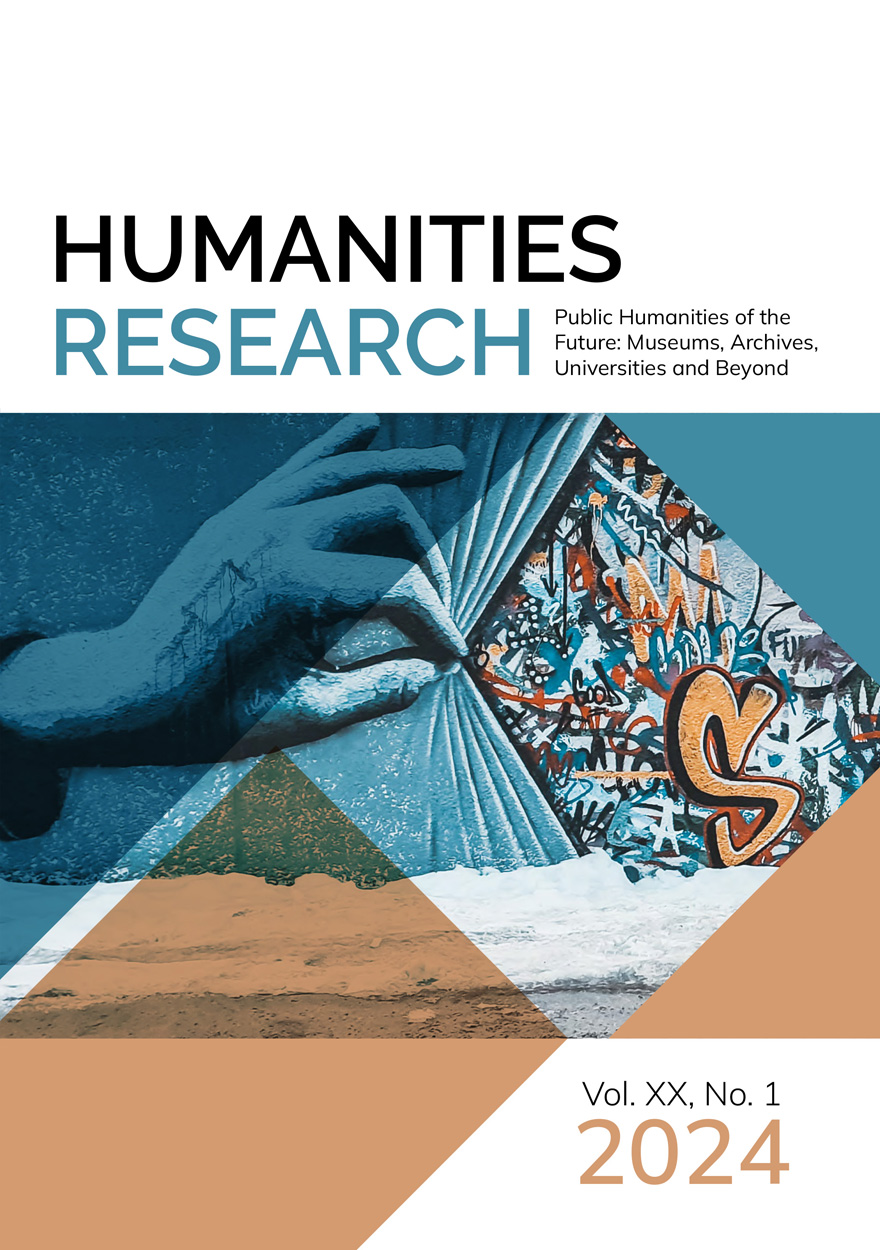
Humanities Research: Volume XX, Number 1, 2024 »
Public Humanities of the Future: Museums, Archives, Universities and Beyond
Edited by: Kylie Message, Frank Bongiorno, Robert Wellington
Publication date: May 2024
‘Public Humanities of the Future: Museums, Archives, Universities and Beyond’ explores the roles, responsibilities and challenges of the humanities in 2024 and beyond. It examines if and how our public cultural institutions and disciplines engage ethically and meaningfully with the challenges of contemporary life, and sheds light on how the conception and practice of humanities research is developing institutionally as well as through collaboration with partners and communities beyond the university context.
This high-profile publication marks a number of historic moments, including the increasing urgency of the humanities in contemporary life, as well as the rapid development of interdisciplinary, digital and public humanities over the last decade, and the opportunities for international collaboration reflected in the post-COVID 19 resumption of international travel. It also marks the 50th-year anniversary of the Humanities Research Centre at The Australian National University, and the re-launch of Humanities Research.
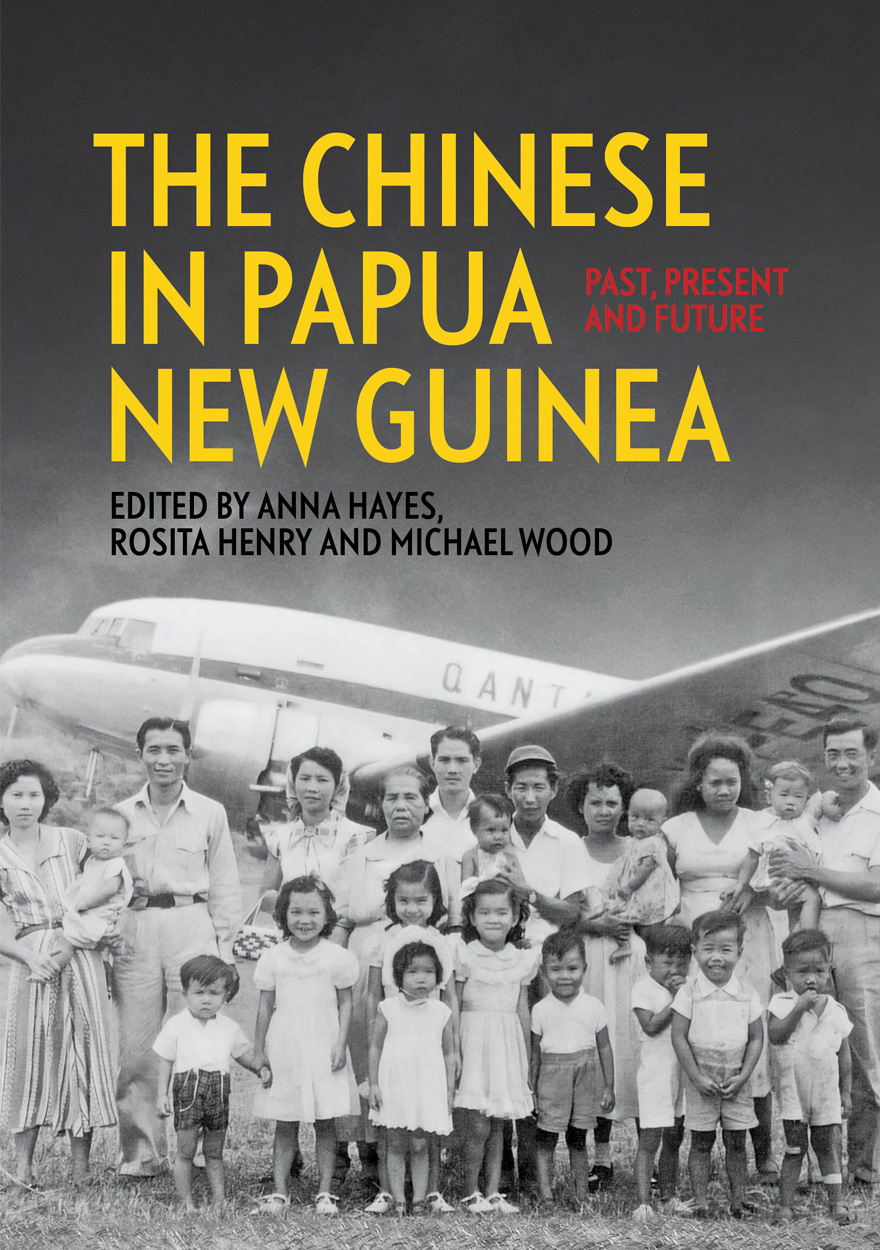
The Chinese in Papua New Guinea »
Past, Present and Future
Publication date: May 2024
Papua New Guinean, Chinese and Australian people have long been entangled in the creation of complex histories and political debates concerning the similarities and differences of each group. These debates are fundamental to understanding how a sense of national unity in Papua New Guinea is formed, as well as within analyses of the wider world of strategic power dynamics and influence. The Chinese in Papua New Guinea offers a comprehensive and nuanced examination of the Chinese in Papua New Guinea. Chinese, Papua New Guinean and Australian interactions are analysed in the context of ongoing shifts in colonial power, increased regional engagement with China, and current political instabilities across the Indo-Pacific region. The many ways the Chinese have been defined as actors in PNG’s history and politics are analysed against the backdrop of a rapidly changing global order. The complexity of Chinese experiences within Papua New Guinea is given expression, here, with chapters that stress political and historical heterogeneity, the importance of language for understanding Chinese social relations, and that articulate rich personal experiences of race relations.
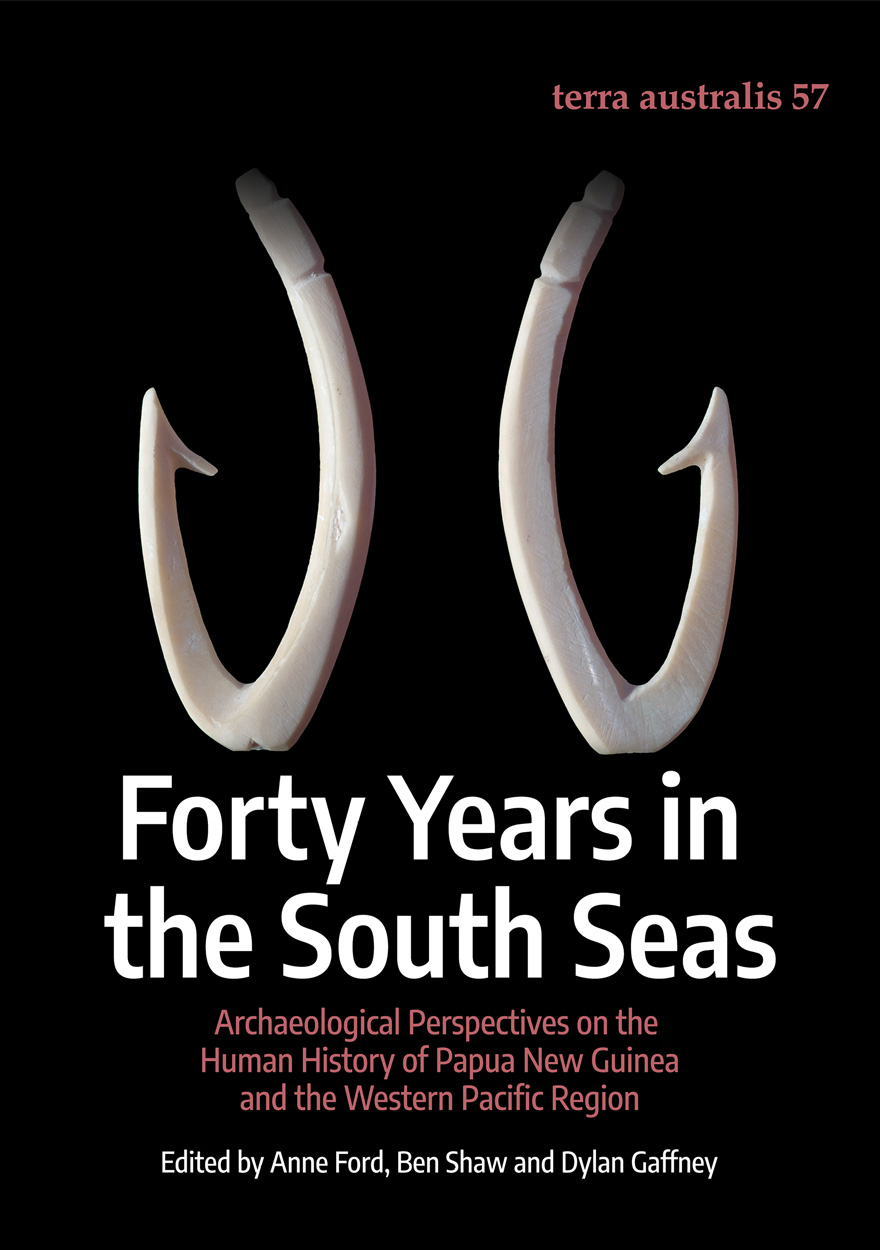
Forty Years in the South Seas »
Archaeological Perspectives on the Human History of Papua New Guinea and the Western Pacific Region
Publication date: May 2024
“This edited volume of invited chapters honours the four decades of fundamental research by archaeologist Glenn Summerhayes into the human prehistory of the islands of the western Pacific, especially New Guinea and its offshore islands. This area helped to shape and direct many ancient dispersal events associated with Homo sapiens, initially from Africa more than 50,000 years ago, through the lower latitudes of Asia, into Australia, New Guinea, the Bismarck Archipelago, and possibly the Solomon Islands.
Around 3000 years ago, coastal regions of northern and eastern New Guinea, and the islands of Melanesia beyond, played a major role in the Oceanic migrations of Austronesian-speaking peoples from southern China and Southeast Asia, migrations that have recently attained new levels of genetic complexity through the analysis of ancient DNA from human remains. For the first time, humans of both Southeast Asian and New Guinea/Bismarck genetic origin reached the islands of Remote Oceania, beyond the Solomons.
Many of the chapters in this book deal with archaeological aspects of this Austronesian maritime expansion (which never seriously impacted the populations of the New Guinea Highlands), especially as revealed through the analysis of Lapita pottery and associated artefacts. Other chapters offer archaeological perspectives on trade and exchange, and on related topics that extend into the ethnographic era.
The research of Glenn Summerhayes stands centrally amongst all these offerings, ranging from the discovery of some of the oldest traces of Pleistocene human settlement in Papua New Guinea to documentation of the remarkable phenomenon of Lapita expansion through Melanesia into western Polynesia around 3000 years ago. This volume is a fitting celebration of a remarkable career in western Pacific archaeology and population history.”
— Emeritus Professor Peter Bellwood, The Australian National University
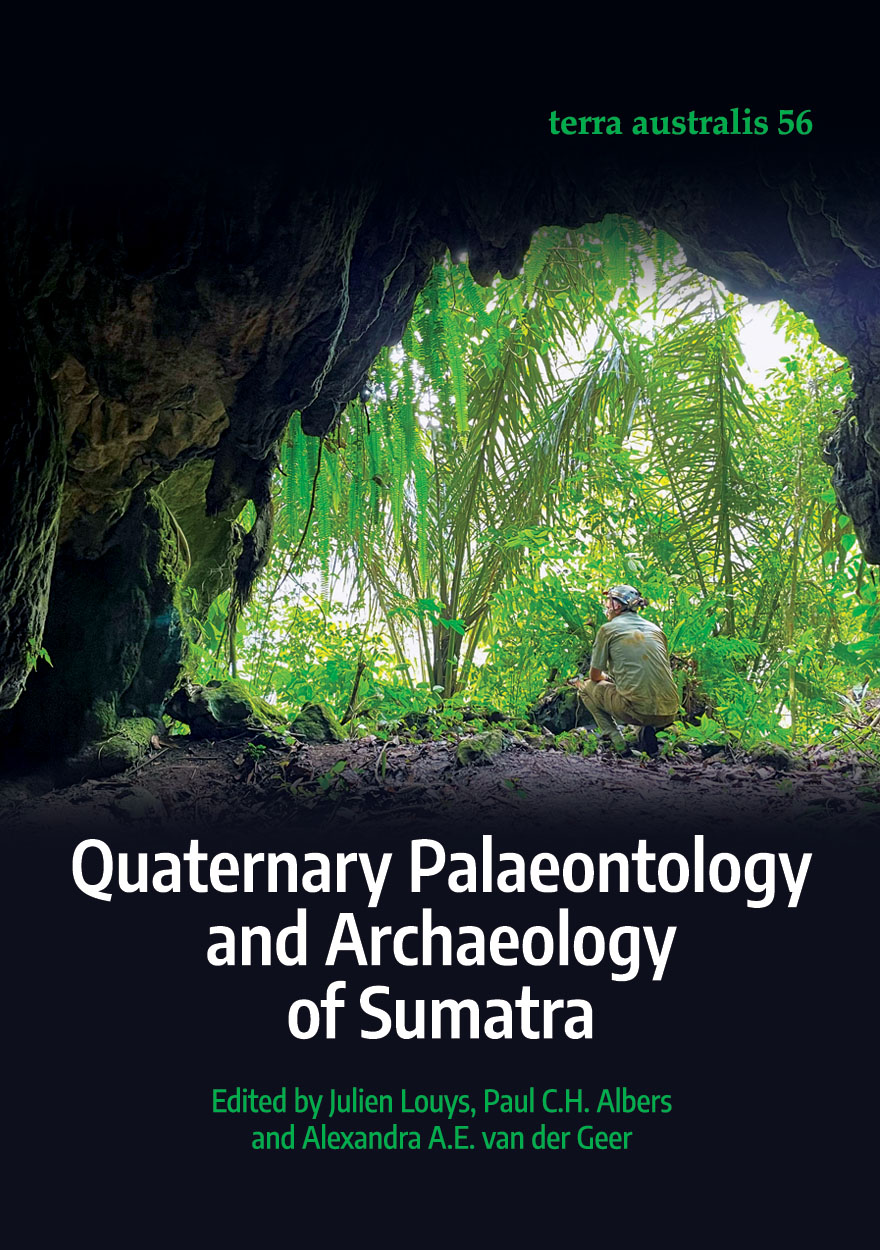
Quaternary Palaeontology and Archaeology of Sumatra »
Publication date: April 2024
“The Indonesian island of Sumatra is part of a chain of islands making up Sunda and the Malay Archipelago. Sumatra is one of the largest islands in the world, housing unique and globally important tropical rainforests, a diverse array of rare plants and magnificent animals, and a population of 60 million who speak a range of Austronesian languages. As beautifully exemplified in this volume, Sumatra is a place which preserves a distinct and long-term human history, studies of which began in earnest with Eugene Dubois’s explorations in the 1880s to find our ancestral ‘missing link’. Archaeological investigation of megaliths and historic empires carry on to this day. A range of topics are explored here, including palaeontological study of fossil mammals and their environments, the routes that Homo erectus took during their wanderings across Indonesia, and the growth and development of societies and empires in more recent periods. This exemplary volume presents a revised view of the history of palaeontological and archaeological research as well as new ground-breaking field research, laying the foundation for future research on the biological and cultural evolution of one of the most majestic islands of the world.”
— Professor Michael Petraglia, Director of the Australian Research Centre for Human Evolution, Griffith University
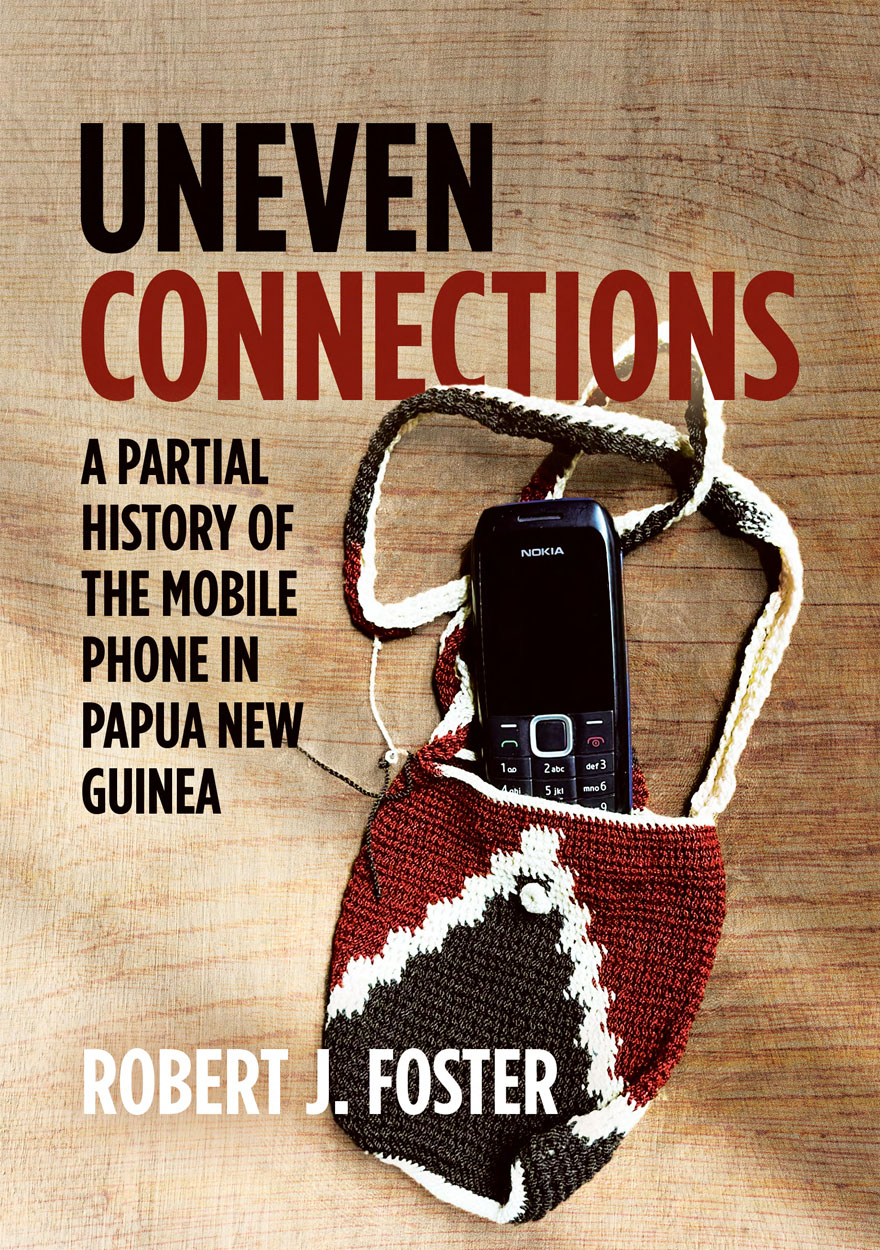
Uneven Connections »
A Partial History of the Mobile Phone in Papua New Guinea
Authored by: Robert J. Foster
Publication date: March 2024
In the first years of the 21st century, economic liberalisation began to transform telecommunications services throughout the Pacific Islands. Government regulators, corporate executives and everyday consumers hopefully imagined that opening mobile phone markets to competition would result in greater access, lower costs and accelerated development.
Uneven Connections examines the ways in which liberalisation took hold in Papua New Guinea (PNG) when a unit of the Caribbean-based mobile network operator Digicel Group Ltd. seized the opportunity to compete with the state-sponsored incumbent. The book highlights how mobile phones entered the lives of urban and rural Papua New Guineans after Digicel’s arrival in 2007. In so doing, it describes a moral economy in which companies, consumers and state agents continually negotiate who owes what to whom. In what ways have these various actors invented and negotiated new forms of both freedom and constraint?
Uneven Connections advances understanding of how a so-called digital revolution in PNG unfolded, resulting in outcomes that often confounded the expectations of policy makers and ordinary citizens alike. It assesses the extent to which some of the promises of this revolution have been redeemed and identifies the challenges faced by companies, consumers and state agents in establishing and experiencing novel forms of uneven connectivity. The book provides a short and selective history of mobile phones in PNG, ending with the sale of Digicel’s Pacific operations to the Australian company Telstra in 2022.
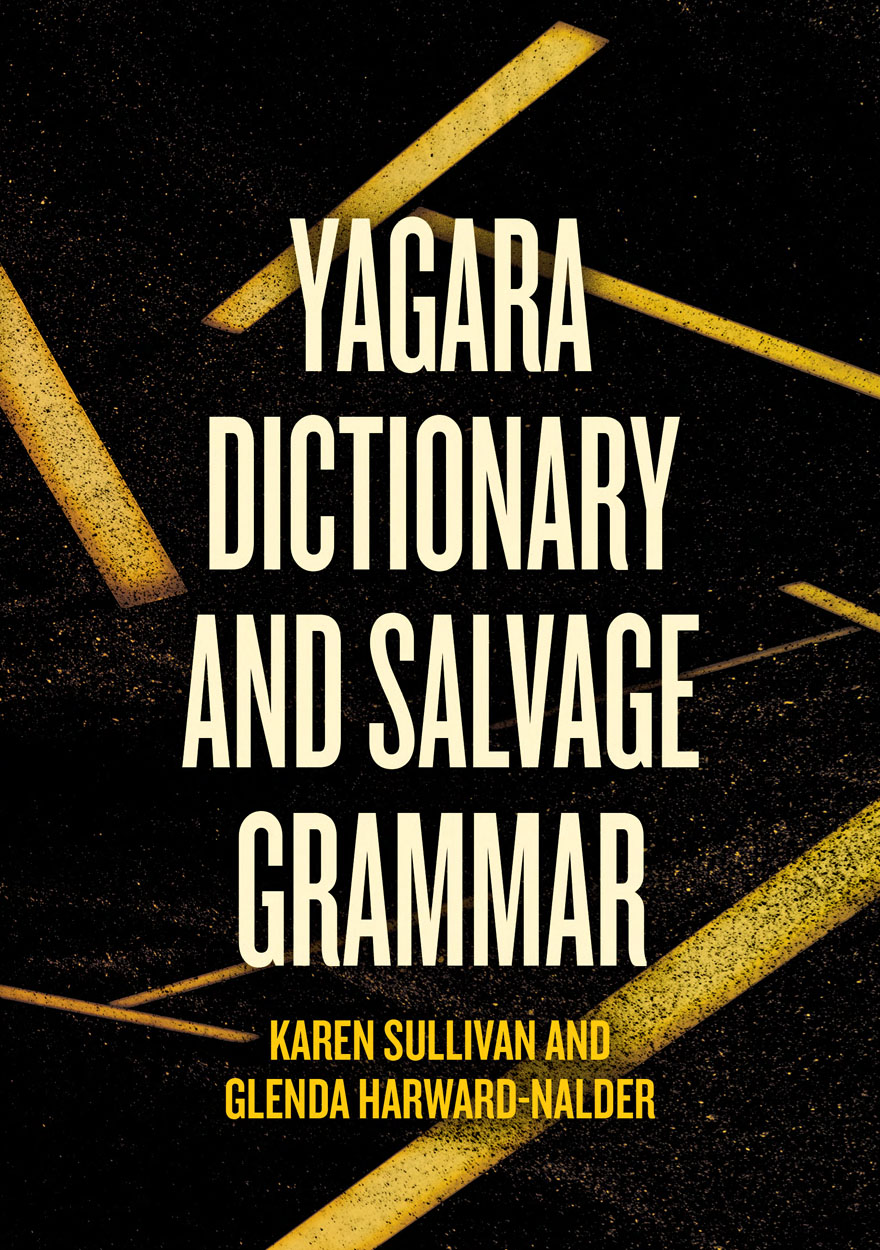
Yagara Dictionary and Salvage Grammar »
Authored by: Karen Sullivan, Glenda Harward-Nalder
Publication date: March 2024
Most English speakers in Australia know a few words of Yagara, the Pama-Nyungan language traditionally spoken in the area that now includes Brisbane and Ipswich. For example, Australian English yakka ‘work’ comes from the Yagara verb yaga ‘to work’. However, no fluent native speakers of Yagara remain. The current volume compares the written records of Yagara to facilitate revitalisation of the spoken language.
Part 1: Grammar introduces the Yagara sources, which are then compared to extract a picture of Yagara’s structure – its sounds, its words, and its grammar. Attention is also given to the system of kinship terms, moieties, and totems.
Part 2: Dictionary contains the most complete Yagara-English dictionary to date, with over 2,200 entries, the original source spellings for each word, standardised spellings, and anthropological notes. Entries include traditional place names, fun insults, and everyday expressions such as the greeting wi balga ‘Hey, come’. The dictionary is followed by an English word finder list.
Part 3: Texts consist of full versions of all known texts in Yagara, including sentences, songs, and three Bible stories. Standardised versions are accompanied by English translations and the original unedited renditions.
Format: Hardback
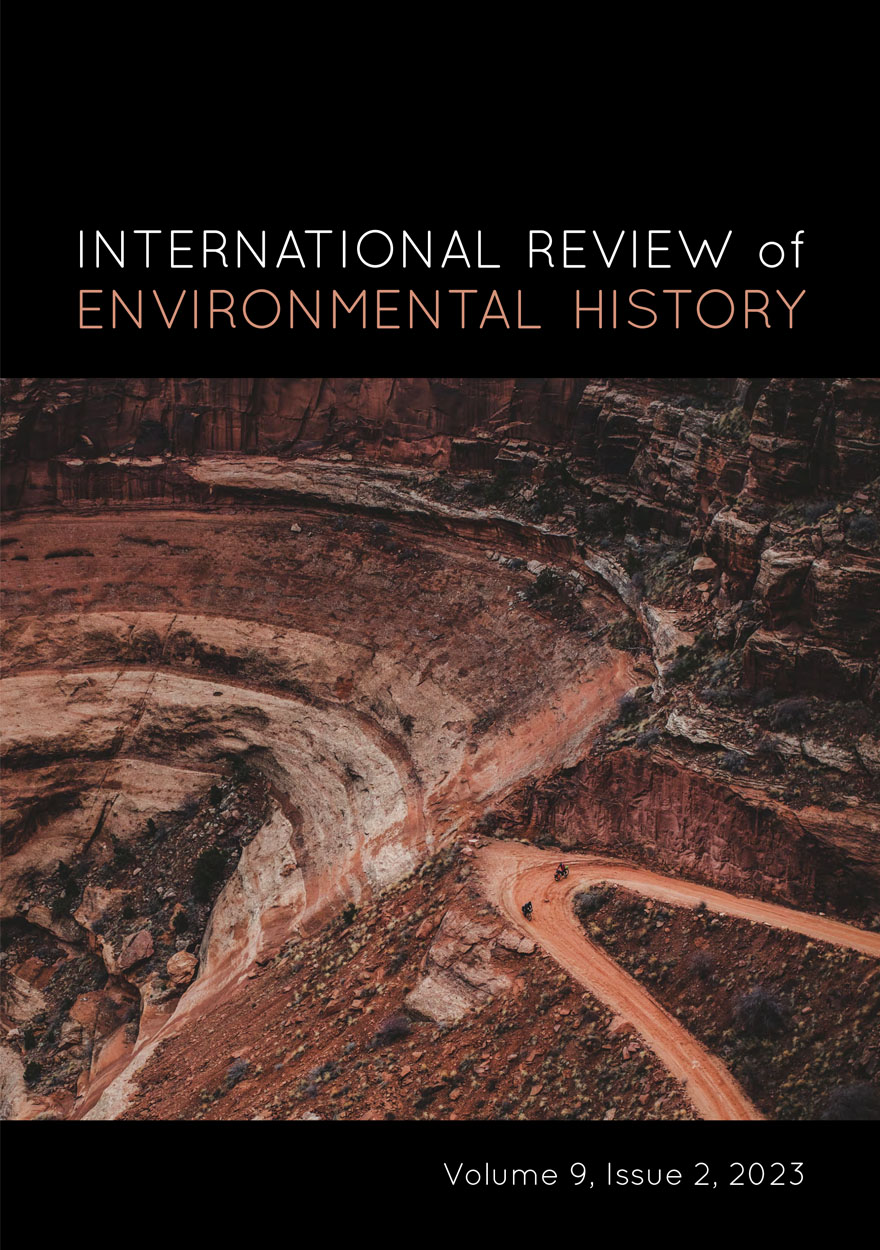
International Review of Environmental History: Volume 9, Issue 2, 2023 »
Edited by: James Beattie
Publication date: February 2024
The histories and legacies of extraction and toxicity are innumerable. Globally, these forces have both facilitated and been a by-product of industrial growth, technological advancement and nation-building for centuries, but so too have they enabled and exacerbated environmental degradation, structural inequality, and the continued colonisation of lands and peoples. In addressing the histories and legacies of extraction and toxicity, this special issue of the International Review of Environmental History draws attention to several of the most pressing themes taken up by historians dealing with these processes. The papers within explore how extraction and toxicity have been woven into the colonial fabric of various countries, the ways that the exploitation and contamination of specific landscapes have come to define the history of such places and spaces, the response of various groups to these processes, and the extent to which long-term environmental consequences wrought by extractive practices and their toxic by-products are—in many cases—yet to be revealed. The articles in this special issue span Australia, Africa, the Pacific, and the Southern Ocean, consider the 19th, 20th, and 21st centuries, and draw on a range of disciplinary methods and perspectives. What binds them together is a deep engagement with the significant legacies of extraction and toxicity that endure into the present and inform contemporary environmental debates.
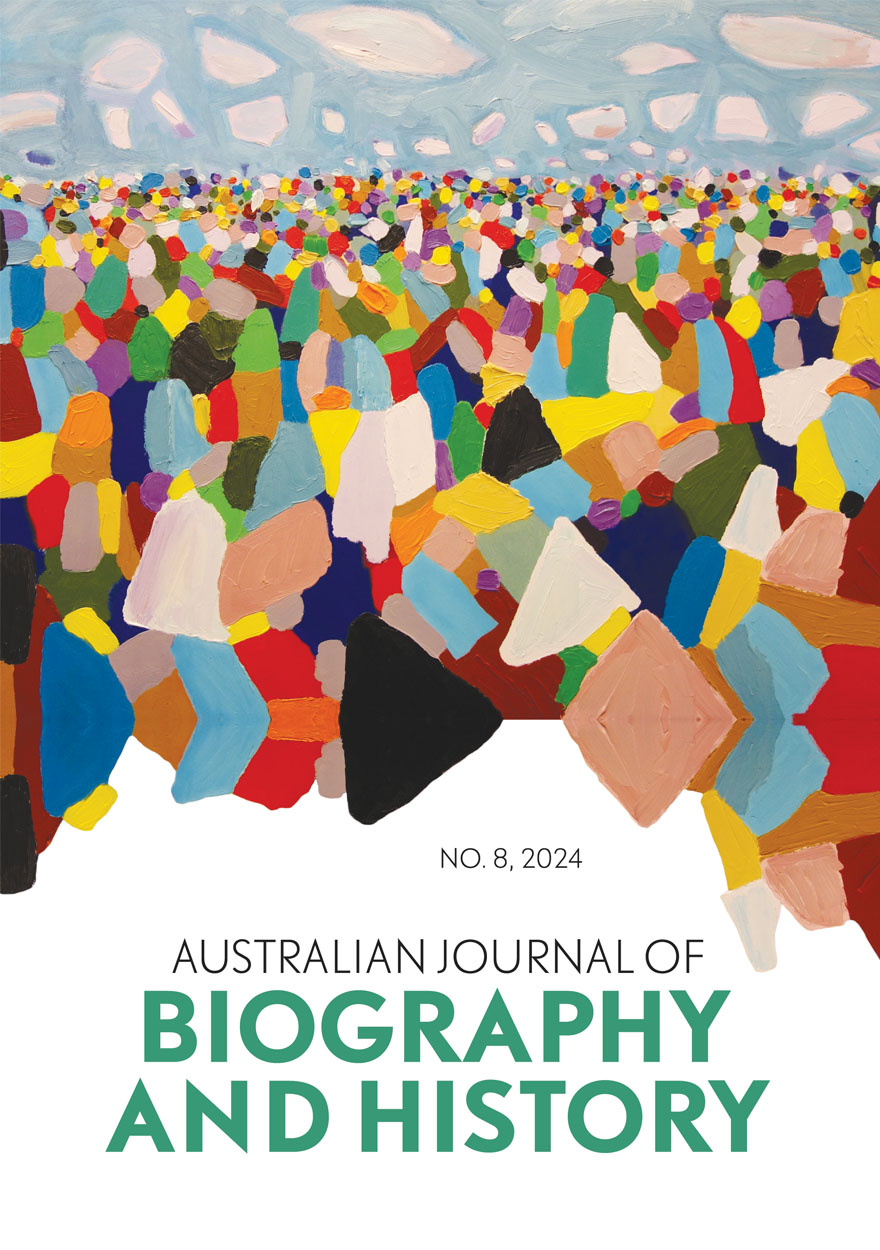
Australian Journal of Biography and History: No. 8, 2024 »
Publication date: February 2024
The Australian Journal of Biography and History No 8 (2024) applies biographical methodologies to enliven themes and episodes in Australian history. Studying John Wear Burton, the head of the Commonwealth department of external affairs between 1947 and 1950, Adam Hughes Henry explores some of the ways in which anti-communism in 1950s Australia served to limit critical thinking on the country’s foreign policy. Gary Osmond and Jan Richardson write on the Black sports promoter and entrepreneur Jack Dowridge, who lived and largely thrived in Brisbane between the mid-1870s until his death in 1922. Phillip Deery and Julie Kimber examine the often-overlooked figure of Evdokia Petrov, considering the ‘disjuncture between historical imagination and the archival record.’ In Richard Fotheringham’s article on the variety entertainer and singer Jenny Howard, aka Daisy Blowes, Howard emerges as a character in her own play. Martin Thomas relates in his article ‘Patrick White and the Path to Sarsaparilla’ how the novelist Patrick White demanded a ‘final pound of flesh from his biographer’ by making David Marr ‘sit with him at the dining table while he read it in front of him from beginning to end.’ The result was a biography of ‘complete artistic freedom’, ‘unauthorised’ certainly, but ‘aided and abetted by its subject.’ Patricia Clarke describes the experience of the journalist Iris Dexter, née Norton (1907–1974), in seeking, but until 1950 failing to obtain, a divorce from an abusive husband, and the devastating impact the episode had on her life. Two further articles in this number utilise collective biographical methodologies to illuminate historical episodes which have become emblematic in Australian history: Nichola Garvey relates the story of the ‘death ship’ Neptune, which arrived in New South Wales in 1790 as part of the infamous second fleet; and Peter Woodley examines the 1891 Queensland bush workers’ strike. This affair has generally been portrayed as a ‘war’ between capital and labour, but as Woodley argues, the strike also showed the ‘often intense and fraught intersections of individuals’ lives’, many of which would never have come to light were it not for the strike and its judicial consequences.
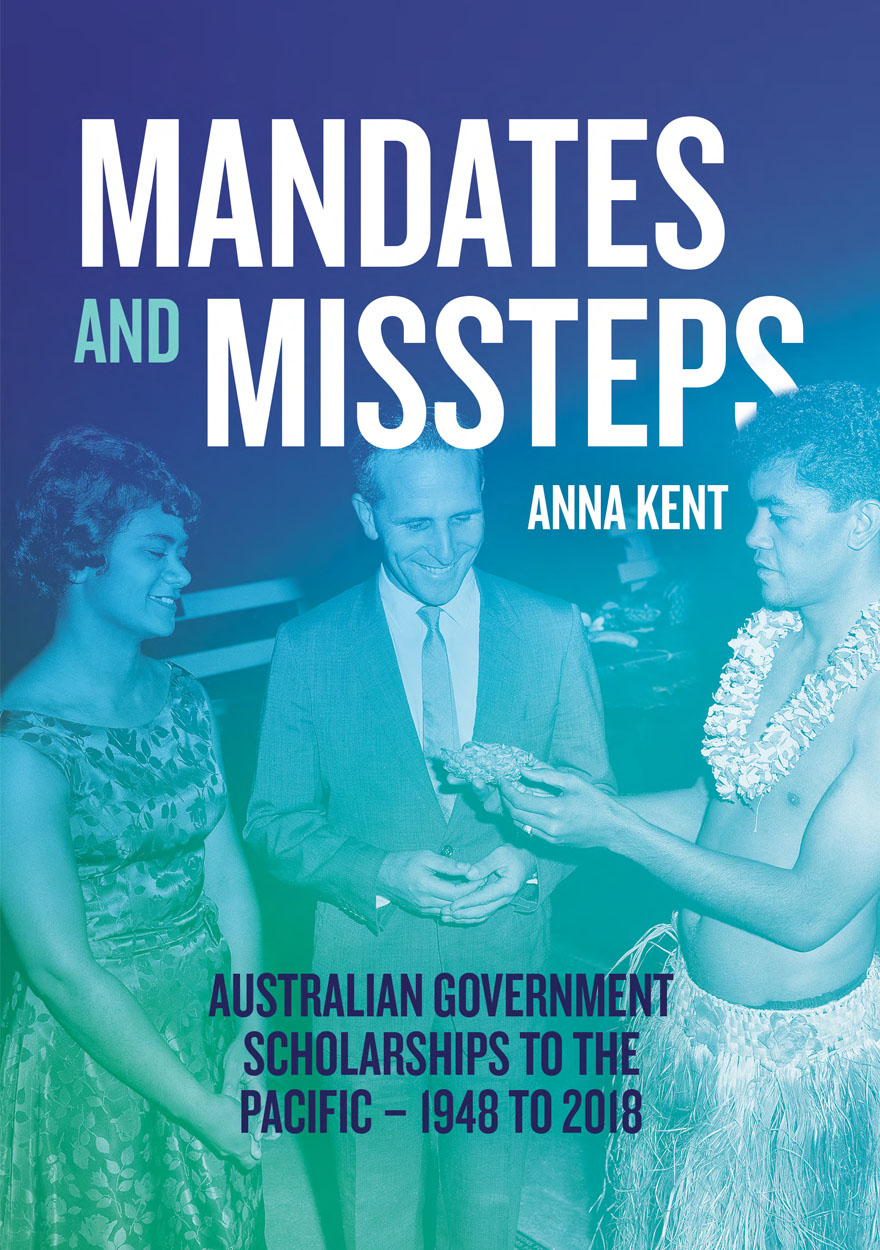
Mandates and Missteps »
Australian Government Scholarships to the Pacific – 1948 to 2018
Authored by: Anna Kent
Publication date: February 2024
Mandates and Missteps is the first comprehensive history of Australian government scholarships to the Pacific, from the first scheme in 1948 to the Australia Awards of 2018. The study of scholarships provides a window into foreign and education policy making, across decades, and the impact such policies have had on individuals and communities. This work demonstrates the broad role these scholarships have played in bilateral relationships between Australia and Pacific Island territories and countries. The famed Colombo Plan is here put in its proper context within international aid and international education history. Australian scholarship programs, it is argued, ultimately reflect Australia, and its perception of itself as a nation in the Pacific, more than the needs of Pacific Island nations. Mandates and Missteps traces Australia’s role as both a coloniser in the Territory of Papua and New Guinea and a participant in the process of decolonisation across the Pacific. This study will be of interest to students and scholars of international development, international education and foreign policy.
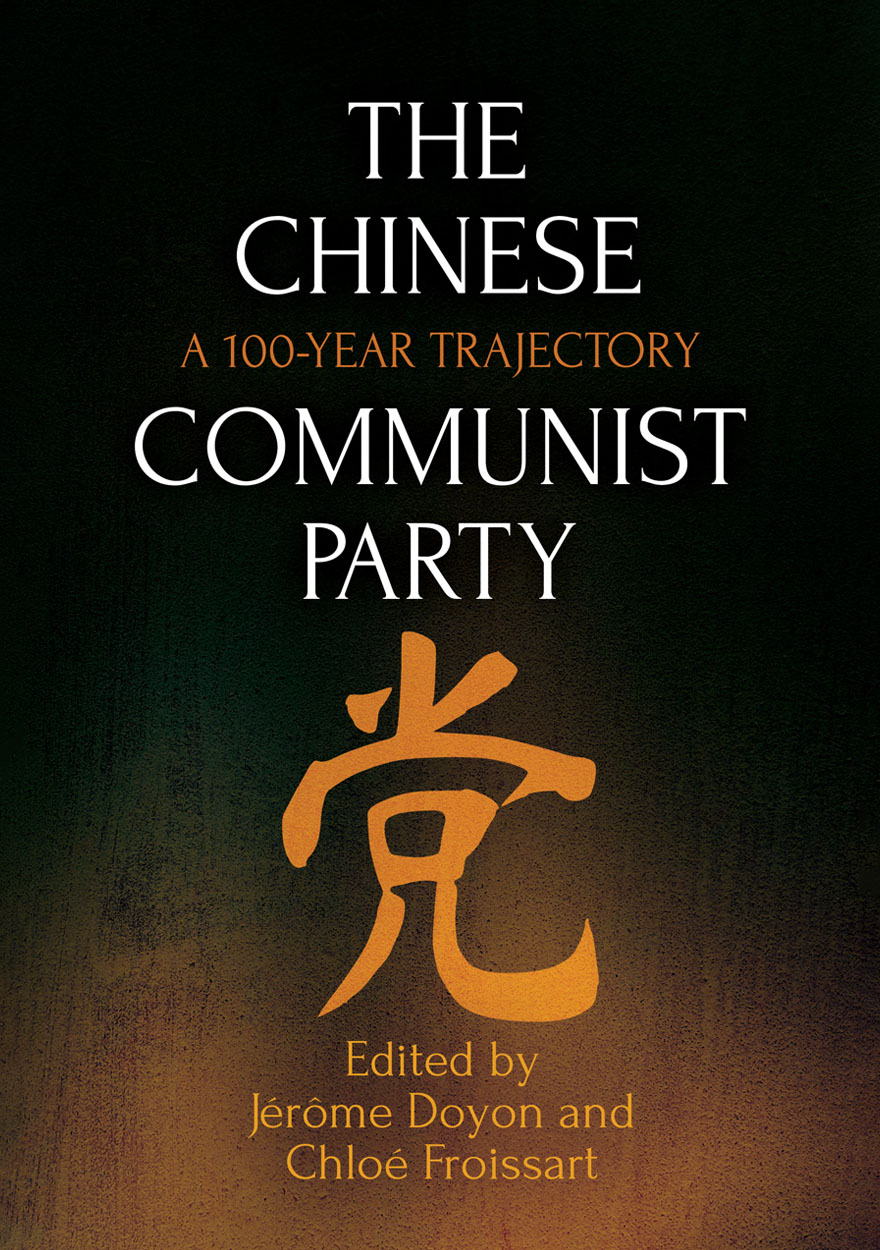
The Chinese Communist Party »
A 100-Year Trajectory
Edited by: Jérôme Doyon, Chloé Froissart
Publication date: January 2024
This volume brings together an international team of prominent scholars from a range of disciplines, with the aim of investigating the many facets of the Chinese Communist Party’s 100-year trajectory. It combines a level of historical depth mostly found in single-authored monographs with the thematic and disciplinary breadth of an edited volume. This work stands out for its long-term and multiscale approach, offering complex and nuanced insights, eschewing any Party grand narrative, and unravelling underlying trends and logics, composed of adaption but also contradictions, resistance and sometimes setbacks, that may be overlooked when focusing on the short term.
Rather than putting forward an overall argument about the nature of the Party, the many perspectives presented in this volume highlight the complex internal dynamics of the Party, the diversity of its roles in relation to the state, as well as in its interaction with society beyond the state. Our historical approach stresses impermanence beyond the apparent permanence of the Party’s organisation and ideology while also bringing to light the recycling of past practices and strategies. Looking at the Party’s evolution over time shows how its founding structures and objectives have had a long-lasting impact as well as how they have been tweaked and rearranged to adapt to the new economic and social environment the Party contributed to creating.



